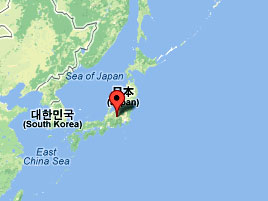
Under current rules, police and prosecutors have no obligation to make any recording of suspects’ questioning and are free simply to write a short written summary of interviews.
Lawyers and rights campaigners have long argued that the system is open to massive abuse, with coercion and forced confessions not uncommon, they say.
However, the advisory panel of experts for Justice Minister Sadakazu Tanigaki remains divided, with police and prosecutors arguing that recording discourages suspects from confessing and is expensive, the Yomiuri Shimbun said.
Public distrust in police and prosecutors has grown in recent years after a series of high profile cases in which investigators seemingly forced innocent individuals to make detailed confessions for crimes in which they played no role.
Japan’s legal system prizes confessions, and prosecutors are generally unwilling to take on cases without the suspect having first acknowledged his guilt.
Criminal lawyers and campaigners say the use of intimidatory tactics by officers is not uncommon.
The Japan Federation of Bar Associations has pushed for all police interrogations to be routinely recorded, as is the case in other wealthy countries like Britain, some states of the US and Australia, saying it would stop officers from using violence or threats.
The justice ministry is yet to decide whether to limit the recording requirements to cases that go through “lay judges”, the equivalent of jury systems in some countries and introduced in Japan in 2009, newspapers said.
Fewer than 2,000 criminal cases annually go through the lay judge system, roughly three percent of all cases authorities handle every year, according to local media.
Police and prosecutors are pushing to limit the expected recording requirement, saying the proposed system comes with a high cost and could discourage confessions from suspects, the Yomiuri said.
A special committee within the ministry’s legislative council is planning to offer its view to Tanigaki by autumn, with an eye to submit a bill to parliament early next year, the Yomiuri said.
The Japanese judiciary has faced strong calls to make itself more transparent after a series of embarrassments and major mistakes.
In March, a 78-year-old death row inmate was released after spending decades in solitary confinement over a 1966 multiple murder, with a judge saying it appeared key evidence had been fabricated and the man might have been framed.